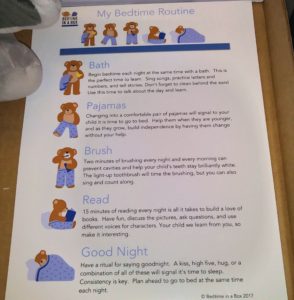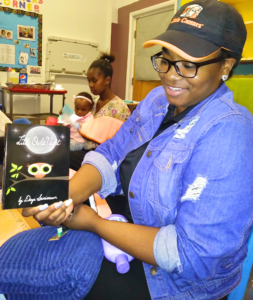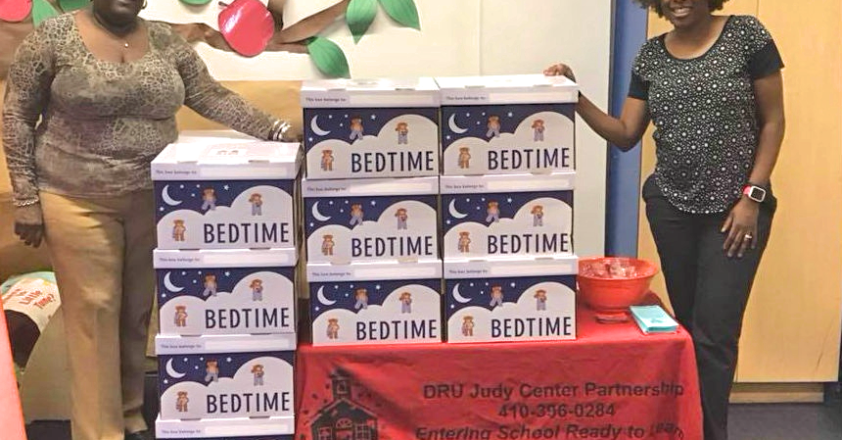The DRU Judy Center Helps Parents Establish Bedtime Routines
Although the focus was on bedtime, there were no pajamas, lullabies or nightlights at the Little Flowers Early Childhood and Development Center, Inc. in Northwest Baltimore. There were, however, a group of parents and a special stack of boxes.
DYK: When parents express concerns about bedtime, you can use a mini-assessment to provide support? Share with parents and families this Bedtime Conversations Checklist and Action Plan.
“Last year, we just distributed the boxes to the parents,” said DRU Judy Center Coordinator Crystal R. Harris. “But we didn’t get any feedback from them.”

This year, Harris decided to take a more strategic approach by moving from family involvement to family engagement. In fact, she employed Goal One of the Maryland Early Childhood Family Engagement Framework: Family Engagement initiatives should promote family well-being. The first step for Harris was to identify parents’ concerns and develop resources to address them. To help parents feel more comfortable sharing, she used the recommended “Conversation Starters” to ask families about their children’s daily bath or bedtime routines.
“One parent told me that her child refuses to go to bed until she does,” said Harris.
As stated in the Toolkit, when a parent expresses concerns about their children’s bedtime behaviors, a mini-assessment of the bedtime routine can help identify areas of support. The next step for Harris was to plan a four-session workshop for parents. Hosted by the DRU Judy Center, the “Bedtime in a Box,” hour-long series highlighted age-appropriate bedtimes and helpful tips on how to get children to bed and sleep through the night.
“Our goal was to stress the importance of establishing a routine, which includes preparation and at least 10-12 hours of sleep every night,” said Harris. “One of my parents thought that was too much.”
Through the workshop and “Bedtime Conversations,” Harris helped parents identify whether their children experienced sleep, routine or behavioral issues. The final step for Harris was to encourage parents to establish a routine they could consistently follow in the same order every night. For additional support, she also distributed the “Bedtime in the Box” kits filled with a variety of sleepy time goodies and a routine log with stickers to track progress.
“My son really likes the books, and he wants me to read the Little Owl Night almost every night,” said Stephanie Holmes, who has a four-year-old son enrolled in the program. “I think parents can learn a lot from this workshop, like replacing the electronics with books at bedtime.”
The “Bedtime in the Box” kits include a bath towel, soap, foam letters and numbers, toothpaste and a brush, five books, a water-resistant collapsible box, an alarm clock, a stuffed animal, an educational learning kit and other games.




